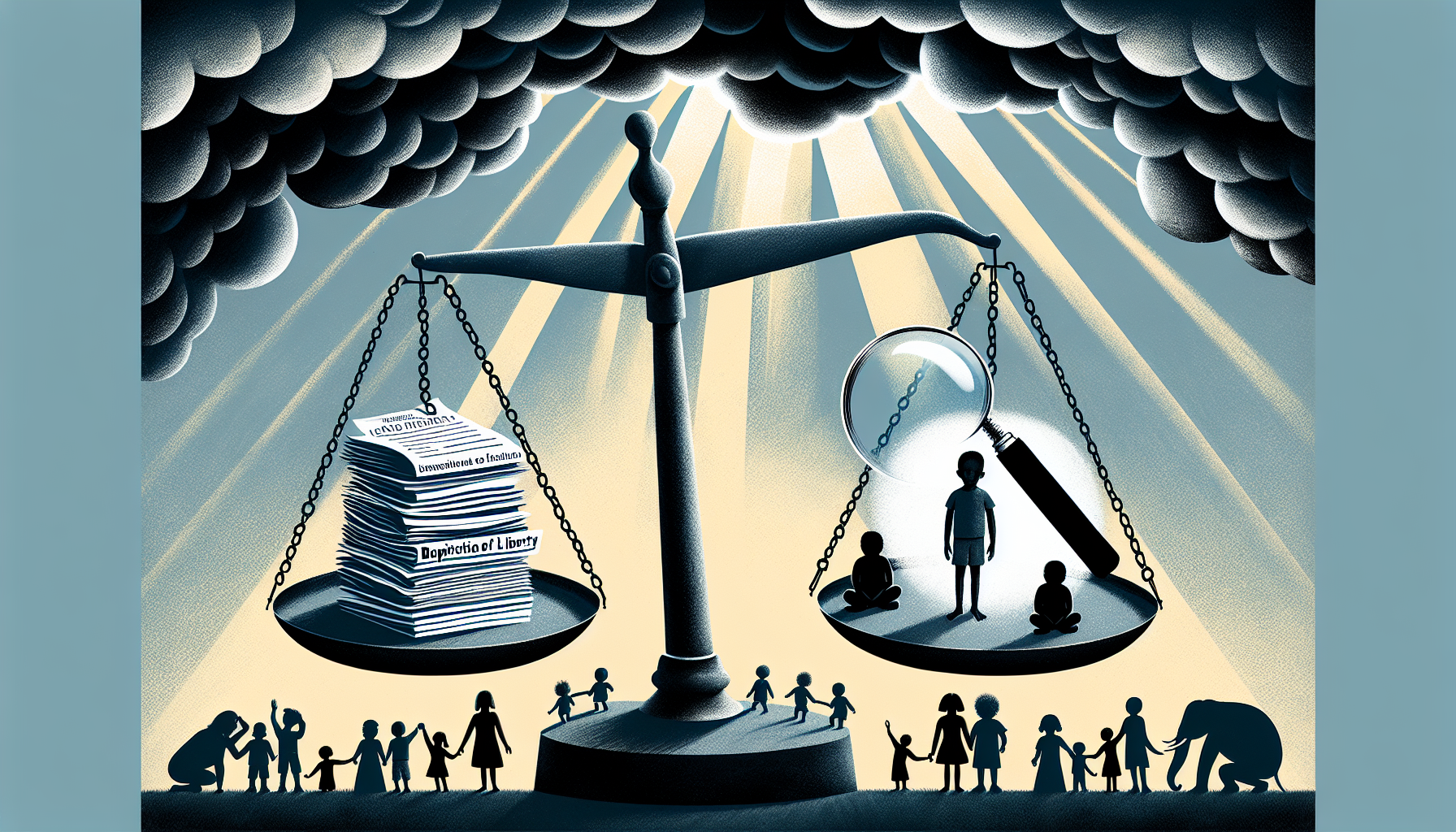Vulnerable Childcare Crisis: The Stark Reality of Deprivation of Liberty Orders
A troubling new report sheds light on the unacceptable conditions faced by vulnerable children in England, particularly those subject to deprivation of liberty orders (DoLs). The findings reveal a shocking trend of inappropriate placements, with some children being housed in unsuitable accommodations such as caravans and Airbnbs. This stark reality highlights a troubling failure within the children's social care system, which risks prioritizing profit over the welfare of the most vulnerable members of society.
Inadequate Living Conditions for Vulnerable Youth
Dame Rachel de Souza, England’s Children’s Commissioner, emphasizes that despite the legal requirements for children under DoLs to reside in well-equipped environments offering comprehensive care, many find themselves in distressing situations. The report cites an alarming increase in DoLs applications—from just 359 in the 2020-21 period to 1,368 in 2023. This glaring escalation indicates a system under strain, inadequately addressing the needs of vulnerable populations.
One moving example shared in the report discusses an autistic teenager who was forced into an Airbnb for nine months after being discharged from a hospital, as she was not eligible for mental health hold criteria. Another account details a teenage girl escaping from domestic violence, whose unfortunate journey led her to a crisis placement in a caravan after experiencing instability in foster care and children’s homes.
The report reveals that such conditions lead to feelings of insecurity and lack of support, exacerbating the trauma these children experienced. Many are left isolated and without the necessary supervision, increasing the stakes for their overall mental health and wellbeing.
Calls for Reform and Investment
Dame Rachel argues for urgent reform within the social care framework. She emphasizes the need for a substantial investment in creating safe, nurturing environments tailored to children's specific requirements. This approach aims not only to reform existing structures but also to create a supportive culture around vulnerable children, echoing a commitment to protecting their rights.
The report suggests a significant reduction in the number of children placed under DoLs and emphasizes the necessity to prohibit placements in illegal or improper accommodations. The children’s input is paramount; strengthening laws surrounding their care, enhancing transparency, and ensuring regular judicial oversight on local authority decisions are immediate steps forward.
Education Secretary Bridget Phillipson echoed the urgency of these reforms, noting the heartbreaking implications for children facing systemic barriers. Plans to break down those barriers include developing community-based provisions that prioritize vulnerable children's needs and lifting the curtain on abusive practices within care providers.
The Importance of Advocacy and Awareness
The report stresses the critical need for children's voices to be heard and factored into the decision-making process that affects their lives. As the discussion on children's welfare continues, it is imperative for society to recognize the collective responsibility in advocating for a care system that upholds safety, stability, and the right to be heard.
The experiences of these children demand an immediate response, urging society to consider their plight not just as statistics, but as human beings deserving of safety and a nurturing environment. Continuous awareness and advocacy are essential to challenge the current ineffective system and promote a culture of care that prioritizes the wellbeing of all children.
By creating a public dialogue around these pressing issues, we can drive the necessary change in the children’s social care system, ensuring that vulnerable youth do not have to navigate such harrowing experiences alone.
